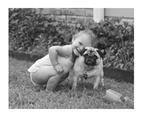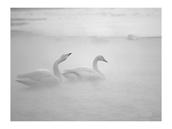
科目: 來源:不詳 題型:完形填空
| 小題1: |
|
| 小題2: |
|
| 小題3: |
|
| 小題4: |
|
| 小題5: |
|
| 小題6: |
|
| 小題7: |
|
| 小題8: |
|
| 小題9: |
|
| 小題10: |
|
| 小題11: |
|
| 小題12: |
|
| 小題13: |
|
| 小題14: |
|
| 小題15: |
|
| 小題16: |
|
| 小題17: |
|
| 小題18: |
|
| 小題19: |
|
| 小題20: |
|
查看答案和解析>>
科目: 來源:不詳 題型:
| A.was afraid of disappointing everyone |
| B.didn’t expect to lose the swim match |
| C.didn’t want to compete against other girls |
| D.was worried about making errors in public |
| A.socks contributed greatly to Elizabeth’s victory |
| B.the match nearly drove Elizabeth desperate |
| C.good luck finally fell on Elizabeth’s team |
| D.Elizabeth’s team narrowly won the match |
| A.swim faster in the T-shirt |
| B.enjoy swim meets later on |
| C.experience the moment again |
| D.take part in an Olympic event |
查看答案和解析>>
科目: 來源:不詳 題型:閱讀理解
| A.to meet a friend |
| B.to see the father off |
| C.to take a family photo |
| D.to enjoy the sailing of the ship |
| A.he was still alive. |
| B.His knee was broken. |
| C.His ship had been sunk. |
| D.He had arrived in Glasgow. |
| A.He lost his arm |
| B.He repaired the engines. |
| C.He managed to take a lifeboat. |
| D.He was the last to leave the ship. |
| A.A group of forgotten heroes |
| B.A book describing a terrifying battle. |
| C.A ship engineer’s wartime experience. |
| D.A merchant’s memories of a sea rescue. |
查看答案和解析>>
科目: 來源:不詳 題型:完形填空
| 小題1: |
|
| 小題2: |
|
| 小題3: |
|
| 小題4: |
|
| 小題5: |
|
| 小題6: |
|
| 小題7: |
|
| 小題8: |
|
| 小題9: |
|
| 小題10: |
|
| 小題11: |
|
| 小題12: |
|
| 小題13: |
|
| 小題14: |
|
| 小題15: |
|
| 小題16: |
|
| 小題17: |
|
| 小題18: |
|
| 小題19: |
|
| 小題20: |
|
查看答案和解析>>
科目: 來源:不詳 題型:閱讀理解
| A.very fat | B.very clever | C.very kind | D.very strange |
| A.the pig lost a leg in the fire |
| B.the farmer deeply thanked the pig |
| C.the pig had a very good keeper |
| D.the real leg had been eaten by the farmer |
| A.report a piece of news |
| B.tell us a moving story |
| C.tell us a humorous story |
| D.have a joke with us |
查看答案和解析>>
科目: 來源:不詳 題型:閱讀理解
| A.to win the Nobel Prize for the first time |
| B.to be awarded the Nobel Prize for the second time. |
| C.in the work itself |
| D.to have a much more important recognition of his work. |
| A.You will be able to win the Nobel Prize through the scientific research |
| B.You can make as much money as possible by doing the scientific research. |
| C.You may continue doing with something different and exciting, so you can never be tired of doing the scientific research. |
| D.You can get much more chances of promotion by making the scientific research. |
| A.He would forget this failure and start the next experiment. |
| B.He used to be worried about it for several days and never forget it. |
| C.He always gave up his study as the result of the failure. |
| D.He used to think out the reasons and then continue to do it again. |
| A.The writer could still keep calm when he heard the news that he had won the Nobel Prize. |
| B.The writer always gave up his courage when he met with some difficulties in the course of his scientific research. |
| C.In the field of science there are still many new things which need to be studied further. |
| D.There are still many exciting places to explore in the world. |
查看答案和解析>>
科目: 來源:不詳 題型:完形填空
| 小題1: |
|
| 小題2: |
|
| 小題3: |
|
| 小題4: |
|
| 小題5: |
|
| 小題6: |
|
| 小題7: |
|
| 小題8: |
|
| 小題9: |
|
| 小題10: |
|
| 小題11: |
|
| 小題12: |
|
| 小題13: |
|
| 小題14: |
|
| 小題15: |
|
| 小題16: |
|
| 小題17: |
|
| 小題18: |
|
| 小題19: |
|
| 小題20: |
|
查看答案和解析>>
科目: 來源:不詳 題型:完形填空

| 小題1: |
|
| 小題2: |
|
| 小題3: |
|
| 小題4: |
|
| 小題5: |
|
| 小題6: |
|
| 小題7: |
|
| 小題8: |
|
| 小題9: |
|
| 小題10: |
|
| 小題11: |
|
| 小題12: |
|
| 小題13: |
|
| 小題14: |
|
| 小題15: |
|
| 小題16: |
|
| 小題17: |
|
| 小題18: |
|
| 小題19: |
|
| 小題20: |
|
查看答案和解析>>
科目: 來源:不詳 題型:閱讀理解

| A.Why Not for Man? | B.Graceful Swans |
| C.Swans’ Brave Act | D.I Just Couldn’t Believe It! |
| A.It was deserted by other geese. |
| B.It was stuck in the ice. |
| C.It was wounded and couldn’t fly. |
| D.It was lost in the water. |
| A.the swans would not help the Canada goose |
| B.she didn’t care about this matter any more |
| C.the swans wouldn’t identify with the Canada goose |
| D.the swans would peck the Canada goose to death |
| A.They chipped off the ice held in its feathers. |
| B.They waited patiently for the ice held in its feathers to melt. |
| C.They came down and lifted it up to the sky together. |
| D.They stayed with it and protected it. |
查看答案和解析>>
科目: 來源:不詳 題型:閱讀理解
| A.was famous because he worked with many scientists |
| B.liked making friends with the famous people |
| C.received a lot from other scientists |
| D.made contributions to many different fields |
| A.1647 | B.1634 | C.1662 | D.1640 |
| A.learning by himself with his father’s help |
| B.introducing himself to them |
| C.designing experiments and instruments |
| D.refusing any reward from Royal Society of London |
| A.he couldn’t finish his work on time sometimes |
| B.he had all kinds of interests in his daily life |
| C.he was too proud to look up to them |
| D.the other scientists took the fruits of his experiments |
查看答案和解析>>
湖北省互聯(lián)網(wǎng)違法和不良信息舉報平臺 | 網(wǎng)上有害信息舉報專區(qū) | 電信詐騙舉報專區(qū) | 涉歷史虛無主義有害信息舉報專區(qū) | 涉企侵權(quán)舉報專區(qū)
違法和不良信息舉報電話:027-86699610 舉報郵箱:58377363@163.com